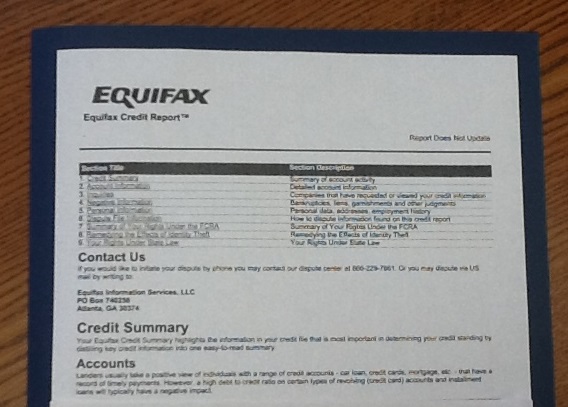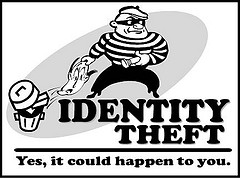
The Equifax Data Breach: How to Protect Yourself
The recent security breach at Equifax from mid-May through July 2017 exposed the personal information of 143 million people; this included Social Security numbers, birth dates, addresses, and driver license numbers. You may be wondering, “Am I affected?” and, if so, “What should I do now?”
First, find out if your information was exposed at https://www.equifaxsecurity2017.com/potential-impact/. Make sure you are on a secure computer and an encrypted network connection. Even if your information was not exposed, U.S. consumers can get a year of free credit monitoring and other services. The site will give you a date when you can come back to enroll. Write down the date and return to the site and click “Enroll” on that date. You have until November 21, 2017 to enroll.
Order your free credit reports annually through the federally authorized web site www.annualcreditreport.com. You are allowed one free report every 12 months from each of the three major credit reporting agencies: Equifax, TransUnion, and Experian. Your credit reports will provide a detailed history that may better alert you to credit fraud.
Consider a credit freeze. A credit security freeze prevents credit reporting agencies from releasing your credit report or information from it, with a few exceptions, unless you lift the freeze. A credit freeze prevents identity thieves from opening new accounts in your name but it won’t prevent a thief from making charges to your existing accounts. It also does not prevent non-credit related frauds, such as tax refund identity theft and health insurance fraud. For these, consumers are advised to “be vigilant.”
You must request a credit freeze with each agency. In Florida, the fee to place a freeze is $10 with each agency for persons under age 65. If you are 65 or older or have been a victim of identity theft, the fee is waived. Currently, Equifax is waiving fees. You will need to lift the freeze if you want to open a new account, change insurance policies, rent housing, or sign up for new utilities or phone service – any transaction requiring a credit check. The fee to lift the freeze, either temporarily or permanently, is $10 per agency and it may take up to three business days for the lift to take effect.
Credit freeze requests may be made online, by phone, or by certified U.S. mail. Be patient and persistent, as many consumers are filing requests; websites often get overloaded temporarily. Below is the contact information for each credit reporting agency for each contact method:
Online
Equifax: https://www.freeze.equifax.com/Freeze/jsp/SFF_PersonalIDInfo.jsp
Experian: https://www.experian.com/freeze/center.html
TransUnion: https://www.transunion.com/credit-freeze/place-credit-freeze
Telephone
Equifax: 800-685-1111
Experian: 888-397-3742
TransUnion: 888-909-8872
U.S. Mail
Equifax: Equifax Security Freeze, P.O. Box 105788, Atlanta, GA 30348
Experian: Experian, P.O. Box 9554, Allen, TX 75013
TransUnion: TransUnion LLC, P.O. Box 2000, Chester, PA 19016
For mailed security freeze requests, include the following information in a cover letter format:
- Full name (with middle initial) and former name, if applicable
- Current address and former addresses within the last five years
- Social Security number
- Full date of birth (month, day, year)
- Signature
- Photocopies of two forms of identification, such as a government-issued identity card and proof of residence such as phone bill or utility company bill.
For more information, visit: http://www.freshfromflorida.com/Consumer-Resources/Scams-and-Fraud/Identity-Theft/Security-Freeze-Credit-Report
Federal Trade Commission – steps to take to protect your information:
https://www.consumer.ftc.gov/blog/2017/09/equifax-data-breach-what-do
Adapted from:
The Equifax Data Breach: What to Do, Federal Trade Commission
Equifax Security Breach: Steps to Protect Yourself, UF/IFAS Extension Hillsborough County
To Freeze or Not to Freeze My Credit Report?, University of Illinois Extension
Credit Freeze Information in the Wake of the Equifax Hack, Rutgers University Extension


